
Find Help
More Items From Ergsy search
-

What causes appendicitis?
Relevance: 100%
-
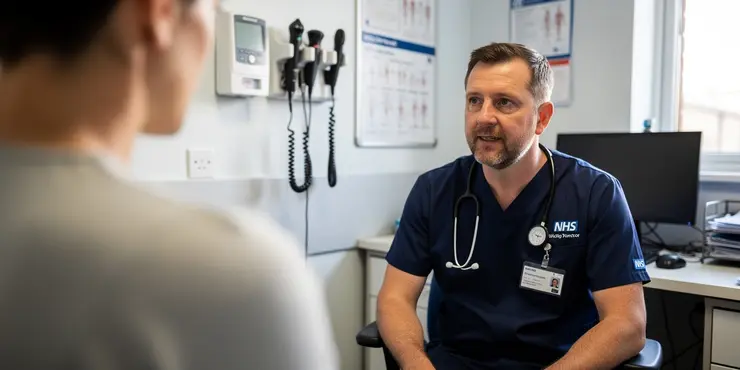
How is appendicitis different from other causes of abdominal pain?
Relevance: 83%
-
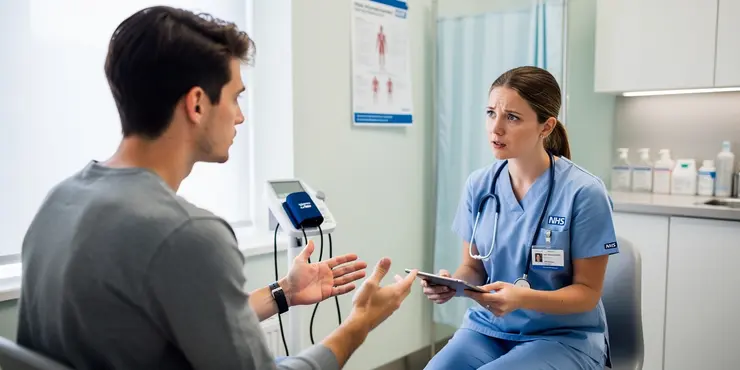
What is Appendicitis?
Relevance: 80%
-
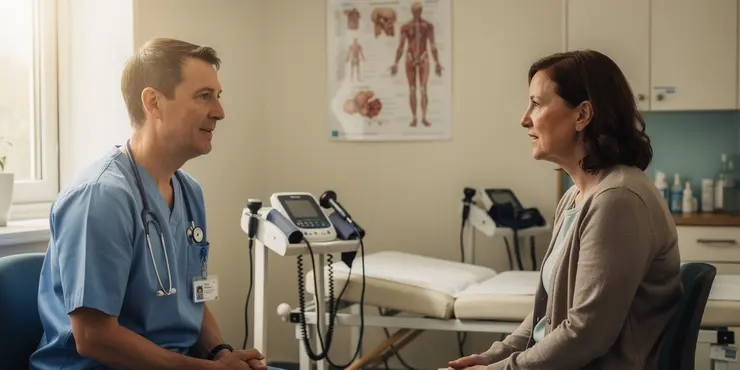
Is appendicitis hereditary?
Relevance: 80%
-
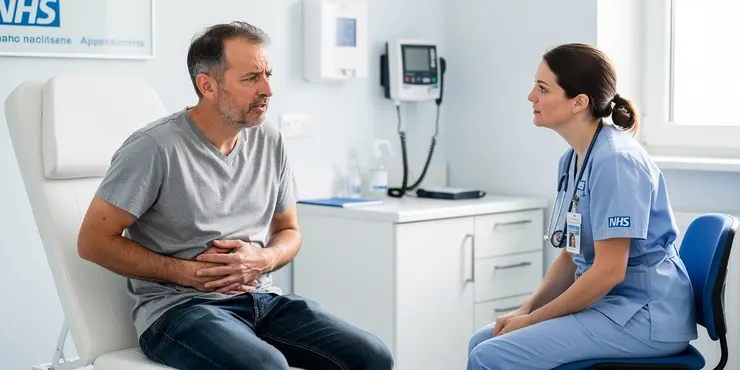
What are the potential complications of appendicitis?
Relevance: 73%
-

Can appendicitis go away on its own?
Relevance: 71%
-
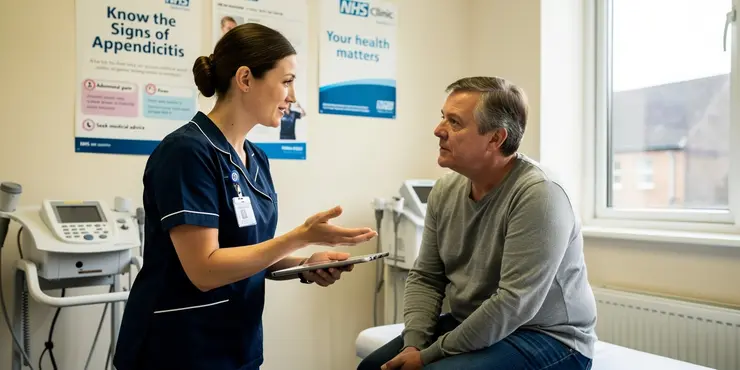
What are the common symptoms of appendicitis?
Relevance: 71%
-
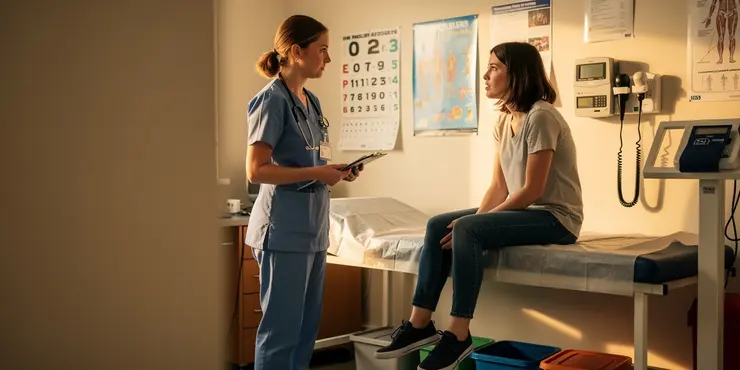
How is appendicitis diagnosed?
Relevance: 70%
-
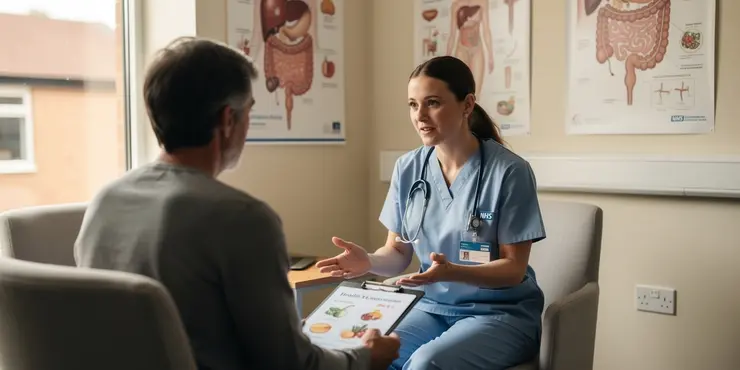
Can diet or lifestyle changes prevent appendicitis?
Relevance: 70%
-
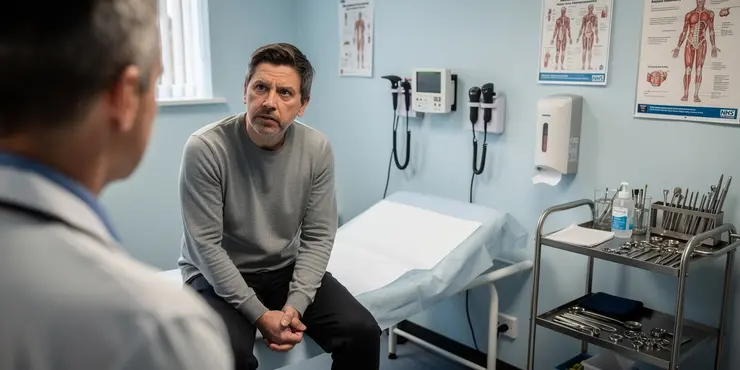
What happens if appendicitis is left untreated?
Relevance: 70%
-

What is the treatment for appendicitis?
Relevance: 69%
-
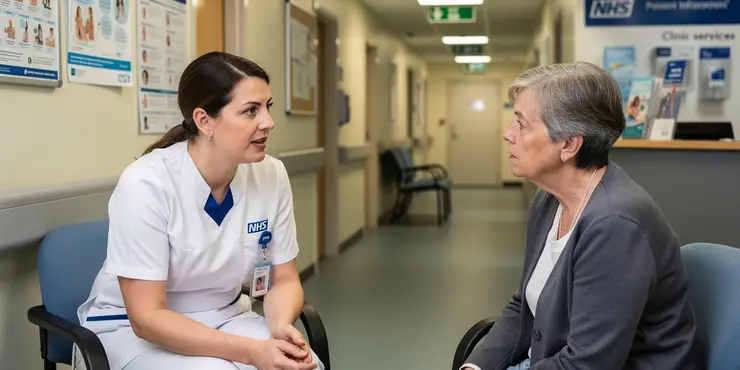
Can appendicitis occur more than once?
Relevance: 68%
-
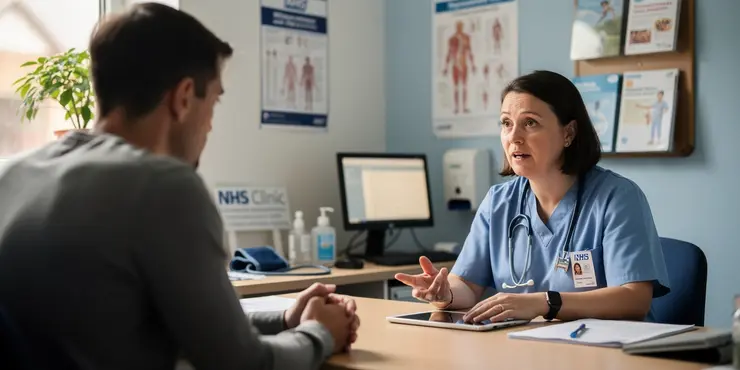
Can appendicitis be treated with antibiotics?
Relevance: 67%
-
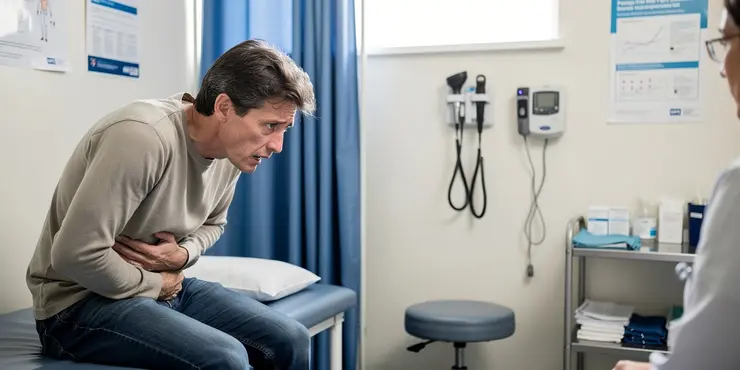
Where is the pain located when you have appendicitis?
Relevance: 65%
-
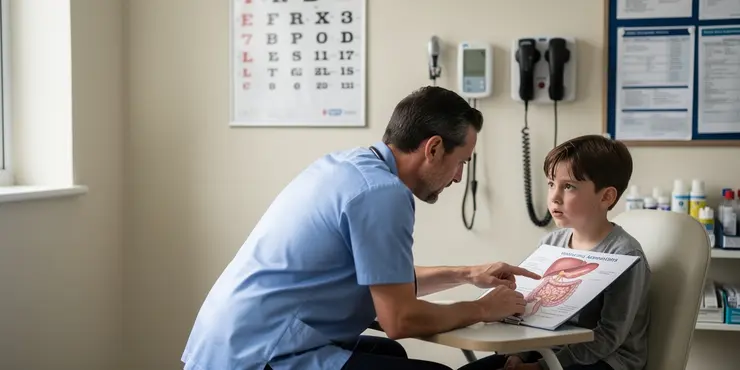
What is the likelihood of needing surgery for suspected appendicitis?
Relevance: 65%
-
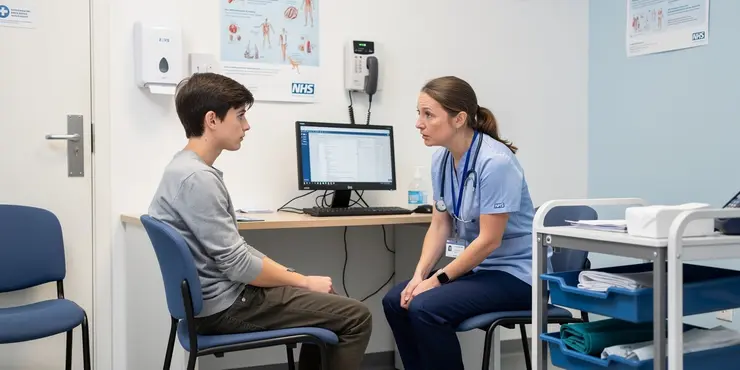
Is appendicitis common in any particular age group?
Relevance: 64%
-
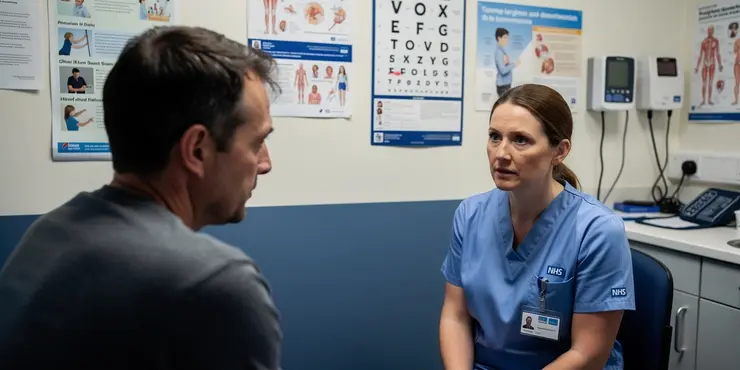
How soon should you see a doctor if you suspect appendicitis?
Relevance: 63%
-

Can you live without an appendix?
Relevance: 36%
-

Are there any risk factors for appendicitis?
Relevance: 30%
-
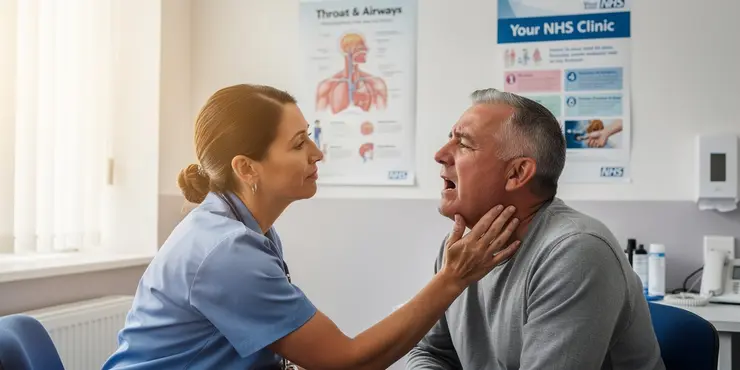
Causes of a sore throat
Relevance: 30%
-
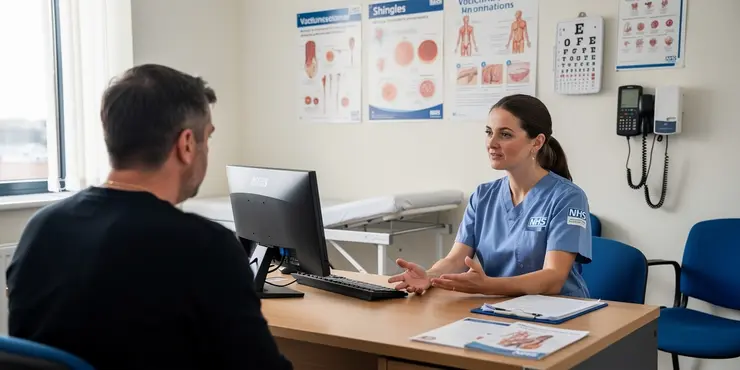
What causes shingles?
Relevance: 29%
-
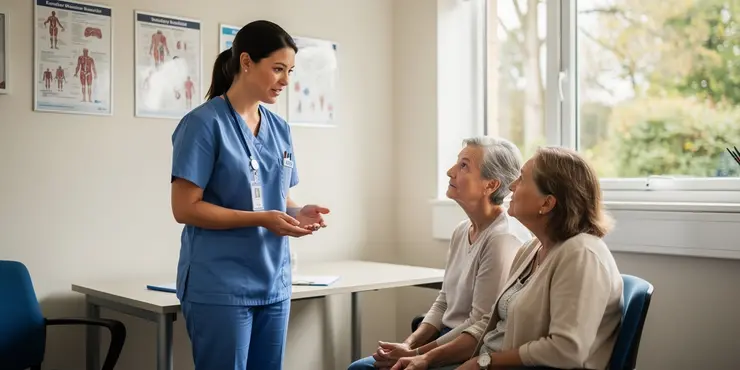
What causes hypotony?
Relevance: 29%
-

What causes autism?
Relevance: 29%
-
What causes tinnitus?
Relevance: 29%
-

What causes shingles?
Relevance: 29%
-
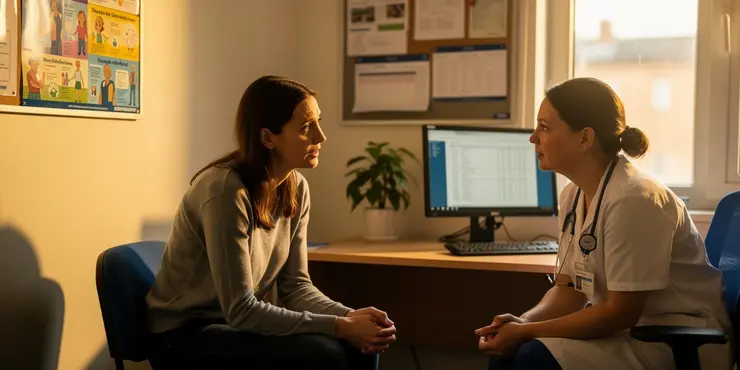
BSL - Causes of insomnia
Relevance: 29%
-
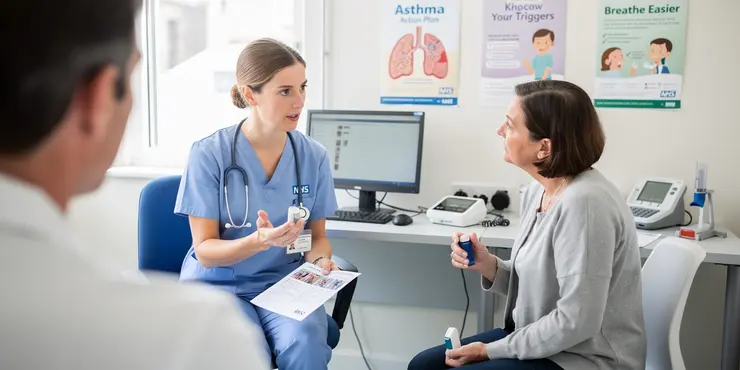
What causes asthma?
Relevance: 29%
-
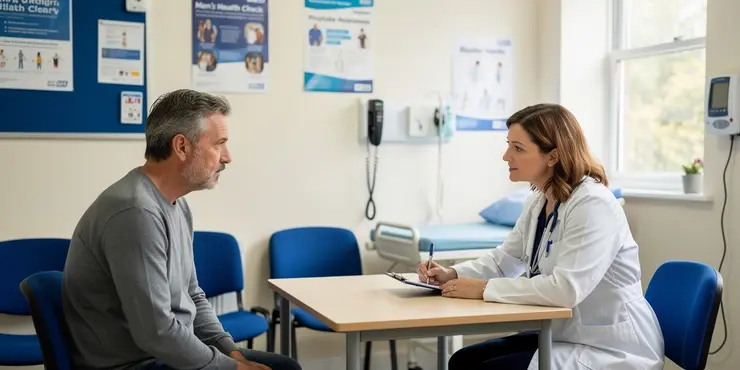
What causes BPH?
Relevance: 29%
-

What causes eczema?
Relevance: 29%
-
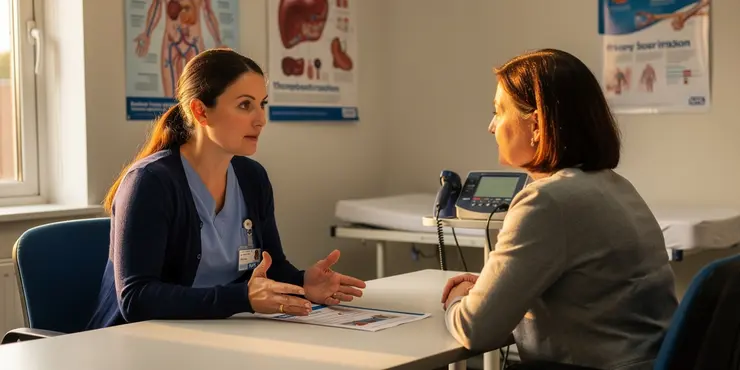
What causes thrombosis?
Relevance: 29%
-
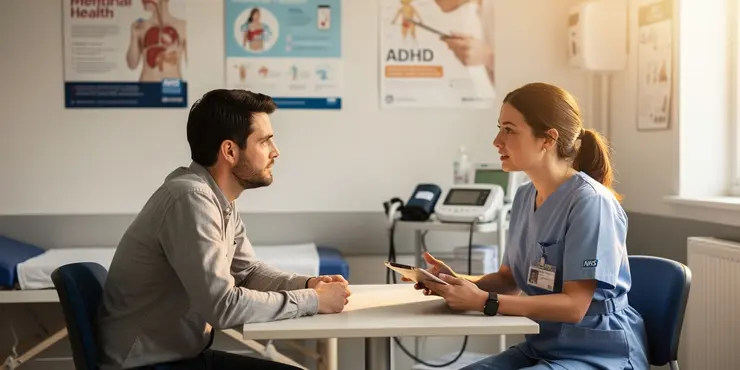
What causes ADHD?
Relevance: 28%
-
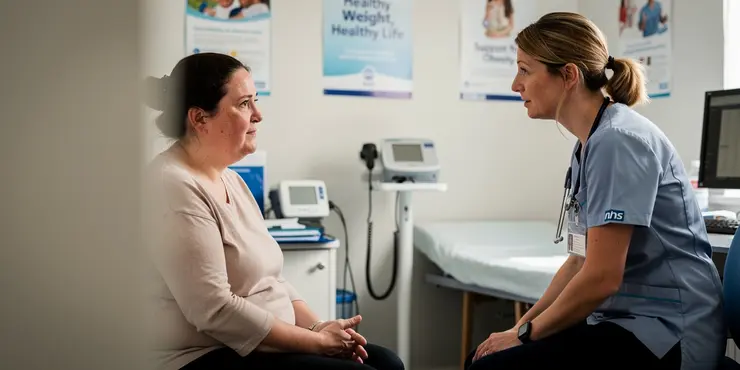
What causes obesity?
Relevance: 28%
-
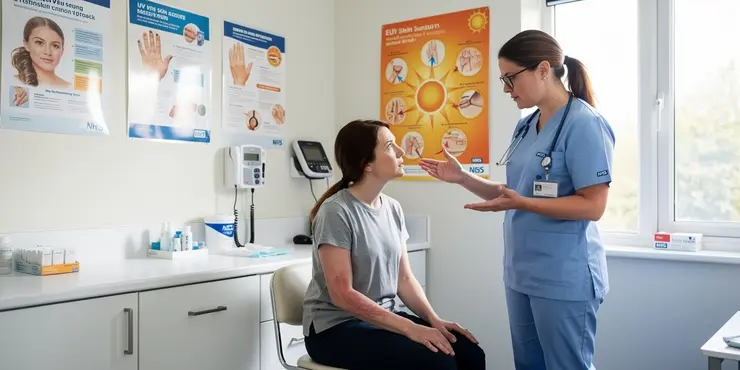
What causes sunburn?
Relevance: 28%
-

What causes SAD?
Relevance: 28%
-
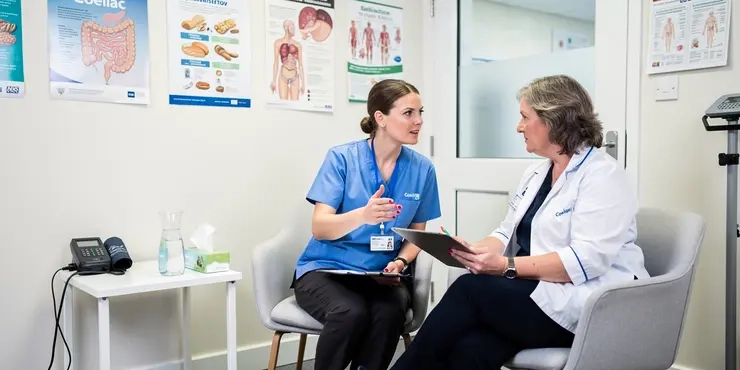
Causes of coeliac disease
Relevance: 28%
-
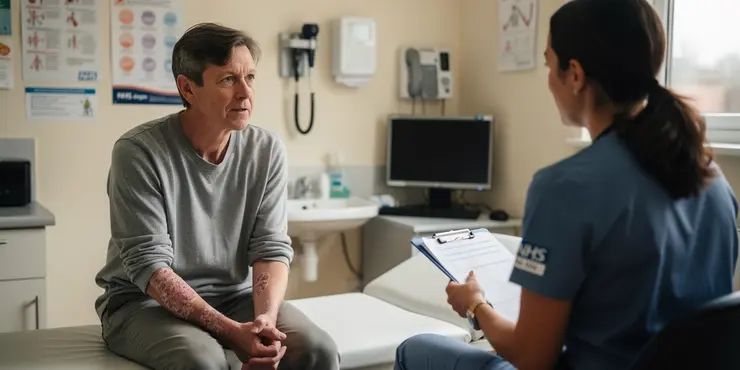
What causes psoriasis?
Relevance: 28%
-
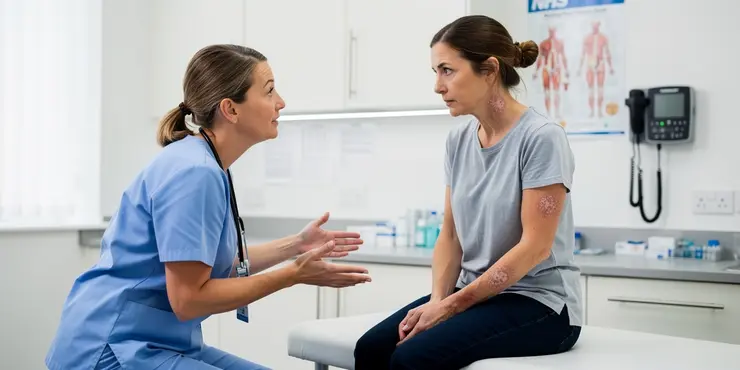
What causes nettle rash?
Relevance: 28%
-
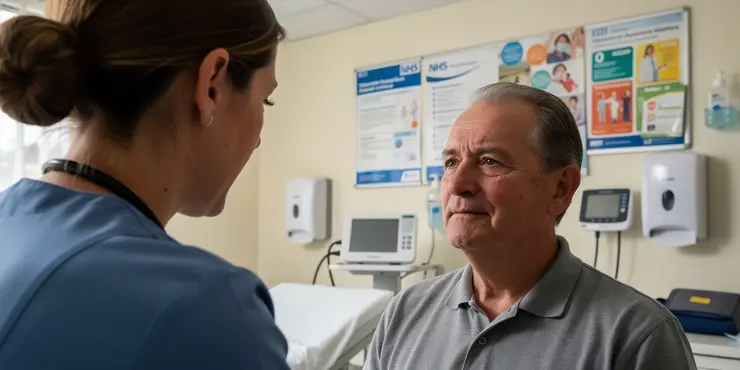
What causes cold sores?
Relevance: 28%
-

What causes jaundice in newborns?
Relevance: 28%
-
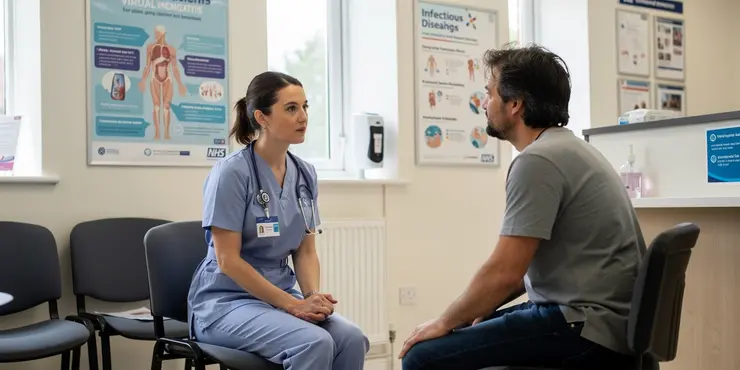
What causes viral meningitis?
Relevance: 28%
What is Appendicitis?
Appendicitis is a condition characterised by the inflammation of the appendix, a small, tube-shaped pouch attached to the large intestine. This condition is considered a medical emergency because if left untreated, an inflamed appendix can burst or perforate, leading to severe complications such as peritonitis or sepsis.
Causes of Appendicitis
The exact cause of appendicitis is not always clear, but several factors are believed to contribute to the inflammation of the appendix. It is generally thought to result from a blockage within the appendix that leads to bacterial overgrowth and inflammation.
Blockage as a Primary Cause
One of the most common reasons for appendicitis is an obstruction in the appendix’s lumen. This can be caused by faecal matter, known as a 'faecalith', which is a hardened mass of stool. The blockage can also be due to the buildup of mucus or enlarged lymphoid follicles, which are part of the immune system. Once blocked, the increase in pressure, reduced blood flow, and bacterial growth can lead to inflammation.
Bacterial Infection
An infection in the gastrointestinal tract, whether viral, bacterial, or fungal, can sometimes lead to appendicitis. The appendix may be more prone to infection when it is obstructed, as the stagnant environment within the blocked appendix allows bacteria to proliferate rapidly.
Other Risk Factors
Some studies suggest that genetics may play a role in appendicitis, as family history can sometimes indicate a higher risk. Additionally, certain infections such as gastrointestinal viruses can increase susceptibility to appendicitis. While less common, traumatic injury to the abdomen has also been suggested as a potential trigger for appendicitis.
Age and Dietary Factors
Appendicitis can occur at any age but is most common amongst people aged 10 to 30. Dietary factors have been suggested, though not conclusively proven, to influence the likelihood of developing appendicitis. Some researchers hypothesise that diets low in fibre may contribute to the development of appendicitis due to the impact on bowel movements and stool consistency.
Understanding Appendicitis
Although the precise mechanics of appendicitis onset can vary from person to person, understanding these potential causes can help in recognising symptoms early. Common symptoms include abdominal pain, particularly in the lower right side, fever, nausea, and vomiting. Given the risks associated with a ruptured appendix, anyone experiencing these symptoms should seek immediate medical attention.
What is Appendicitis?
Appendicitis happens when the appendix gets swollen and sore. The appendix is a tiny tube that is connected to the large intestine. If appendicitis is not fixed, the appendix might burst, causing big problems like infections. It is important to get help from a doctor quickly.
Causes of Appendicitis
Doctors are not sure why appendicitis happens, but several things can lead to it. It usually happens when the appendix gets blocked. Bacteria can grow fast there, making the appendix swollen.
Blockage as a Primary Cause
A common reason for appendicitis is something blocking the appendix. This can be hard stool, called a 'faecalith', or a build-up of mucus. Sometimes, parts of the immune system can also block it. When blocked, the appendix gets too much pressure and blood flow gets lower. Bacteria can grow and this causes swelling.
Bacterial Infection
Infections in the stomach area, like those from bacteria, viruses, or fungus, can sometimes lead to appendicitis. If the appendix is blocked, it is easier for bacteria to grow and cause an infection.
Other Risk Factors
Your family history might make you more at risk of appendicitis. Some studies show that certain infections might increase the chances of getting appendicitis. Rarely, a hit to the belly area can also cause it.
Age and Dietary Factors
People from 10 to 30 years old get appendicitis more often. Some think eating foods low in fiber might make it happen because it affects how you poop. But this is not proven.
Understanding Appendicitis
Knowing what might cause appendicitis can help you notice signs early. Signs to look for are pain in your belly, especially on the lower right side, fever, feeling sick, and throwing up. Because a burst appendix can be very serious, it is important to see a doctor right away if you have these signs.
Frequently Asked Questions
What is appendicitis?
Appendicitis is the inflammation of the appendix, a small pouch attached to the large intestine.
What are the common causes of appendicitis?
Common causes include blockage of the appendix opening, infection, fecal matter, or enlarged lymphoid follicles.
How does a blockage lead to appendicitis?
A blockage in the appendix can trap bacteria inside, leading to infection and inflammation.
Can appendicitis be caused by a viral infection?
Yes, some viral infections can lead to inflammation in the appendix, causing appendicitis.
Are there any dietary factors associated with appendicitis?
A diet low in fiber is sometimes associated with a higher risk of appendicitis due to increased constipation, which may contribute to blockage.
Can genetics play a role in appendicitis?
Family history and genetics can increase the likelihood of developing appendicitis.
What symptoms indicate appendicitis?
Common symptoms include abdominal pain, loss of appetite, nausea, vomiting, and fever.
Can stress cause appendicitis?
While stress itself does not cause appendicitis, it can exacerbate symptoms or affect overall health.
Is it possible to prevent appendicitis?
There is no guaranteed way to prevent appendicitis, but maintaining a healthy diet and addressing gastrointestinal issues may help reduce risk.
Can appendicitis occur at any age?
Appendicitis can occur at any age but is most common between ages 10 and 30.
How is appendicitis diagnosed?
Diagnosis typically involves a physical exam, blood tests, imaging tests like an ultrasound or CT scan.
What are the potential complications if appendicitis is left untreated?
If left untreated, an inflamed appendix can burst, causing peritonitis or an abscess, which are serious and require immediate medical attention.
Can appendicitis be treated without surgery?
In some cases, mild appendicitis can be treated with antibiotics, but surgery is the most common and effective treatment.
What is the standard surgical treatment for appendicitis?
The standard treatment is an appendectomy, which is the surgical removal of the appendix.
Can a high-fiber diet affect the risk of appendicitis?
Yes, a high-fiber diet may reduce the risk by promoting regular bowel movements and preventing blockages.
Does a swollen lymphoid follicle contribute to appendicitis?
Yes, swollen lymphoid follicles can block the appendix, leading to appendicitis.
How quickly can appendicitis develop?
Appendicitis can develop rapidly, often becoming severe within 24 to 72 hours.
Are there any lifestyle changes that can reduce the likelihood of appendicitis?
Healthy lifestyle choices like a balanced diet, hydration, and regular physical activity can support digestive health and potentially reduce risk.
Can constipation lead to appendicitis?
Chronic constipation can increase the risk of appendicitis by causing blockages in the appendix.
Is recurrence of appendicitis possible after treatment?
Once the appendix is removed, it cannot recur. However, improper diagnosis and not surgically removing it can cause symptoms to persist or recur.
What is appendicitis?
Appendicitis is when a small part in your belly called the appendix gets sore and swollen. It can make your tummy hurt a lot.
Some ways to help understand more:
- Look at pictures of the body to see where the appendix is.
- Watch videos that explain what happens when the appendix is sore.
- Ask a grown-up or doctor to explain it to you.
Appendicitis means your appendix is sore and swollen. The appendix is a tiny, tube-like pouch that sits on the large intestine in your belly.
What can make your appendix hurt?
Here are some things that can make your appendix hurt:
- A small piece of poop getting stuck
- An infection or being sick
- Swelling or the appendix getting bigger
If your tummy really hurts, ask for help from an adult or see a doctor.
Appendicitis can happen when the tube called the appendix gets blocked. This might be because of a few things: something is stuck in there, like poop; there is an infection; or there are little bumps that get bigger and block it.
To understand this better, you can look at pictures or videos about appendicitis. You can also ask someone to explain it to you.
What happens when something blocks your appendix?
When the tube in your tummy called the appendix gets blocked, it can make you sick.
The blocked tube can get swollen and sore. This is called appendicitis.
If you feel pain in a specific area of your tummy, you should tell an adult. They might decide you need to see a doctor.
Helpful tools: You can use drawings or simple models to understand how the appendix looks and works in your body.
The appendix can get blocked and trap germs. This can cause an infection and swelling.
Can a virus make your appendix sick?
Yes, some viruses can make the appendix swollen and sore. This is called appendicitis.
Can What We Eat Cause Appendicitis?
Appendicitis is when your appendix gets sick and swollen.
Doctors think that some things we eat might make appendicitis more likely.
Eating more fruits and vegetables can help keep your tummy healthy.
If you have questions or worries, talk to a doctor or nurse.
Using picture cards or talking to someone can help if reading is hard.
Eating foods without enough fiber can sometimes lead to a higher chance of getting appendicitis. This is because it can cause constipation, which means it's harder to go poo, and this might block the appendix.
Can your genes make you get appendicitis?
Your genes are like instructions from your parents that decide how your body works.
Sometimes, these instructions can make you more likely to get sick, like with appendicitis.
If you want help reading, you can try:
- Using a ruler or finger to follow the words.
- Asking someone to read with you.
- Listening to an audio version if available.
Your family and genes can make it more likely for you to get appendicitis.
How can you tell if you have appendicitis?
Here are signs that might mean you have appendicitis:
- Pain on the right side of your tummy.
- Feeling sick or wanting to be sick (nausea).
- Tummy pain that gets worse when you move.
- High temperature (fever).
If you think you have these signs, tell a grown-up or a doctor. They can help you feel better.
Try using pictures or ask someone to read with you if it's hard to understand.
People might feel a tummy ache, not want to eat, feel sick, throw up, or have a fever.
Can stress make your appendix hurt?
Stress does not make you get appendicitis. But it can make your symptoms feel worse or affect how you feel overall.
Can you stop getting appendicitis?
Appendicitis means your appendix is hurt. Can you stop this from happening?
Doctors say it's hard to stop appendicitis. We don't know for sure how to prevent it.
But eating healthy food might help. Try to eat lots of fruits and vegetables.
Make sure to drink water and stay healthy.
If your tummy hurts a lot, tell an adult. They can take you to a doctor.
You can't completely stop appendicitis, but eating healthy foods and taking care of your tummy might help you avoid it.
Can you get appendicitis at any age?
Yes, you can get appendicitis at any age.
Appendicitis means your appendix is swollen and painful.
Here are some tips to help:
- If your tummy really hurts, tell a doctor or an adult.
- Look at pictures of the body to find the appendix. It can help you understand.
- Ask an adult to read with you.
Appendicitis can happen to anyone, but it usually happens to people who are between 10 and 30 years old.
How do doctors find out if you have appendicitis?
Doctors check what's wrong by doing a body check-up, looking at blood with tests, or using picture machines like ultrasound or CT scans.
What can happen if you do not treat appendicitis?
If you do not treat appendicitis, it can be very dangerous. Here are some things that might happen:
- The appendix could burst. This is very serious.
- Infection could spread in the belly. This is called peritonitis.
- A pocket of pus might form. This is an abscess.
If you have belly pain and feel unwell, ask a grown-up for help. It is important to see a doctor.
You can use tools like pictures and videos to learn more about appendicitis. This can help you understand better.
If you do not treat a sore appendix, it can burst. This can cause a serious infection inside the belly. This is called peritonitis or an abscess. It is very serious, and you need to see a doctor right away.
Can we fix appendicitis without an operation?
Sometimes, a sore appendix can get better with medicine, but having an operation is the best way to fix it.
How is appendicitis usually treated with surgery?
If someone has appendicitis, it means their appendix is swollen and sore. Doctors can help by doing a special surgery called an appendectomy. They take out the appendix to make the person feel better.
People who need extra help to understand this can use pictures or videos about the surgery. Talking to a doctor can also help them learn more.
The usual treatment is called an appendectomy. This means a doctor takes out the appendix with surgery.
Does eating foods with lots of fiber change the chance of getting appendicitis?
Yes, eating a lot of fiber can help. It can make it easier to go to the bathroom and stop blockages.
Can a swollen lymph node cause appendicitis?
Yes, lumps called swollen lymphoid follicles can block the tube called the appendix. This can make the appendix very sore and sick. This is called appendicitis.
How fast can appendicitis happen?
Appendicitis can start suddenly. It can get worse in a few hours or days. If you have a pain in your belly that doesn't go away, tell a grown-up. They can take you to the doctor.
If you find reading hard, ask someone you trust to help you. You can also use a ruler or your finger to guide you as you read. Listening to audio books or using read-aloud apps can help too.
Appendicitis can happen quickly. It can become very bad in 1 to 3 days.
Can changing how I live help stop appendicitis?
Looking after your body is important. Eating healthy foods, drinking enough water, and moving your body can help your tummy feel good. Doing these things might also help keep you from getting sick.
Can being constipated cause appendix problems?
If you are constipated, it means you find it hard to poop. This does not usually cause appendix problems. The appendix is a small part in your tummy. If it gets sick, it is called appendicitis.
If you have a pain in your tummy or do not feel well, it is important to tell an adult or see a doctor. They can help you feel better.
To help with constipation, you can:
- Drink lots of water.
- Eat fruits and vegetables.
- Stay active by playing or moving around.
If you need more help, talk to a friendly adult or a doctor.
If you often have trouble going poo, it can make your appendix sick. This happens because the poo can block the appendix.
Can appendicitis come back after it is treated?
When the appendix is taken out, it can't come back. But if doctors make a mistake and don't remove it, the pain and problems can come back.
Useful Links
This website offers general information and is not a substitute for professional advice.
Always seek guidance from qualified professionals.
If you have any medical concerns or need urgent help, contact a healthcare professional or emergency services immediately.
Some of this content was generated with AI assistance. We’ve done our best to keep it accurate, helpful, and human-friendly.
- Ergsy carfully checks the information in the videos we provide here.
- Videos shown by Youtube after a video has completed, have NOT been reviewed by ERGSY.
- To view, click the arrow in centre of video.
- Most of the videos you find here will have subtitles and/or closed captions available.
- You may need to turn these on, and choose your preferred language.
- Go to the video you'd like to watch.
- If closed captions (CC) are available, settings will be visible on the bottom right of the video player.
- To turn on Captions, click settings .
- To turn off Captions, click settings again.
More Items From Ergsy search
-

What causes appendicitis?
Relevance: 100%
-

How is appendicitis different from other causes of abdominal pain?
Relevance: 83%
-

What is Appendicitis?
Relevance: 80%
-

Is appendicitis hereditary?
Relevance: 80%
-

What are the potential complications of appendicitis?
Relevance: 73%
-

Can appendicitis go away on its own?
Relevance: 71%
-

What are the common symptoms of appendicitis?
Relevance: 71%
-

How is appendicitis diagnosed?
Relevance: 70%
-

Can diet or lifestyle changes prevent appendicitis?
Relevance: 70%
-

What happens if appendicitis is left untreated?
Relevance: 70%
-

What is the treatment for appendicitis?
Relevance: 69%
-

Can appendicitis occur more than once?
Relevance: 68%
-

Can appendicitis be treated with antibiotics?
Relevance: 67%
-

Where is the pain located when you have appendicitis?
Relevance: 65%
-

What is the likelihood of needing surgery for suspected appendicitis?
Relevance: 65%
-

Is appendicitis common in any particular age group?
Relevance: 64%
-

How soon should you see a doctor if you suspect appendicitis?
Relevance: 63%
-

Can you live without an appendix?
Relevance: 36%
-

Are there any risk factors for appendicitis?
Relevance: 30%
-

Causes of a sore throat
Relevance: 30%
-

What causes shingles?
Relevance: 29%
-

What causes hypotony?
Relevance: 29%
-

What causes autism?
Relevance: 29%
-
What causes tinnitus?
Relevance: 29%
-

What causes shingles?
Relevance: 29%
-

BSL - Causes of insomnia
Relevance: 29%
-

What causes asthma?
Relevance: 29%
-

What causes BPH?
Relevance: 29%
-

What causes eczema?
Relevance: 29%
-

What causes thrombosis?
Relevance: 29%
-

What causes ADHD?
Relevance: 28%
-

What causes obesity?
Relevance: 28%
-

What causes sunburn?
Relevance: 28%
-

What causes SAD?
Relevance: 28%
-

Causes of coeliac disease
Relevance: 28%
-

What causes psoriasis?
Relevance: 28%
-

What causes nettle rash?
Relevance: 28%
-

What causes cold sores?
Relevance: 28%
-

What causes jaundice in newborns?
Relevance: 28%
-

What causes viral meningitis?
Relevance: 28%


